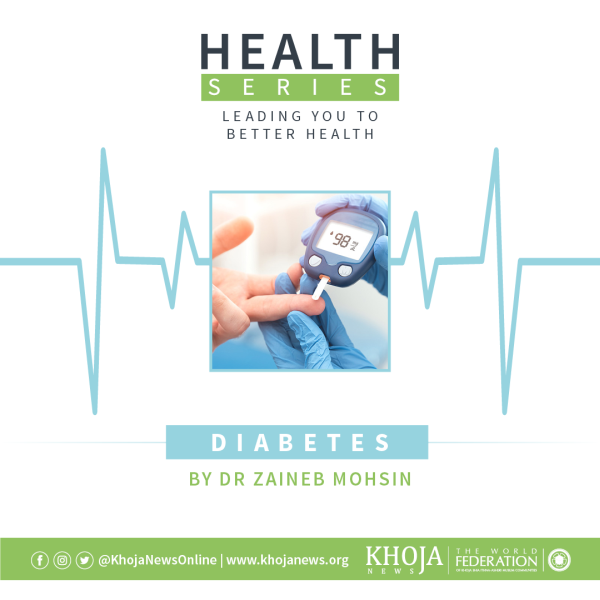WHAT IS DIABETES MELLITUS?
Diabetes mellitus is a common life-long health condition. Diabetes is a condition where the amount of glucose in your blood is too high because the body cannot use it properly.
There are two main types of diabetes. These are called type 1 diabetes and type 2 diabetes.
Type 1 diabetes
In Type 1 Diabetes, the body stops making insulin. Insulin is the hormone that controls blood glucose levels.
Type 2 diabetes
This is more common in people who are overweight or obese. In type 2 diabetes, the body cannot use insulin properly. Type 2 diabetes usually starts in middle-aged or elderly adults.
The focus of this article will be mainly on type 2 diabetes which is the more common form of diabetes.
WHO IS AT RISK FOR DIABETES?
Certain individuals are at a greater risk of developing type 2 diabetes. If you think you are at risk for developing diabetes, you should get tested
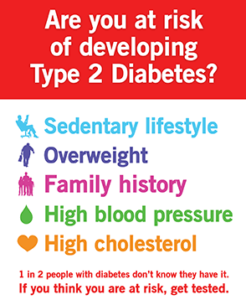
WHAT ARE THE PHYSICAL FEATURES OR COMPLAINTS WHICH MAY SUGGEST DIABETES?
This would include:
- Feeling thirsty most of the time.
- Passing a lot of urine as the body tries to remove extra glucose through the urine
- Fatigue, weight loss and feeling unwell.
For type 2 diabetes, the symptoms develop over weeks to months. However, in type 1 diabetes, the symptoms may develop over days to weeks.
HOW IS DIABETES DIAGNOSED?
If you have physical complaints of diabetes, a diagnosis can be confirmed by any of the following tests:
- A fasting blood glucose which should be more than or equal to 0 mmol/L or 126 mg/dL
- A blood glucose level taken after meals or an oral glucose tolerance test (OGTT), which should be more than or equal to 1 mmol/L or 200 mg/dL
- A test called HbA1c, which looks at the average blood glucose over the last 3 months. This should be more than or equal to 48 mmol/L or 5%
WHAT LIFESTYLE CHOICES CAN I MAKE TO PREVENT OR PROPERLY MANAGE DIABETES?
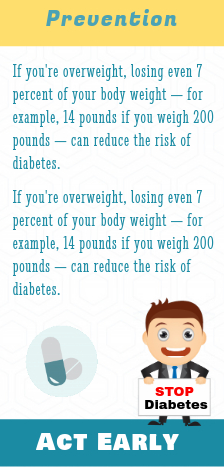
DIETARY:
Dietary measures are important to both prevent and successfully manage diabetes. Losing weight if you are overweight will significantly reduce your risk of developing type 2 diabetes.
It is important to speak to your doctor before instituting any changes, but a general guide would be:
- Avoid excess carbohydrate (sugar-containing foods) in your diet.
- Add lentils and legumes to your diet.
- A large study published in the prestigious British medical journal concluded that a higher intake of fruit, especially berries, as well as green leafy vegetables, cruciferous vegetables or their fiber is associated with a lower risk of type 2 diabetes.
- Add in oily fish twice a week, such as sardines, salmon and mackerel. This would help to increase your intake of Omega-3 fatty acids which will protect the blood vessels going to your heart and brain.
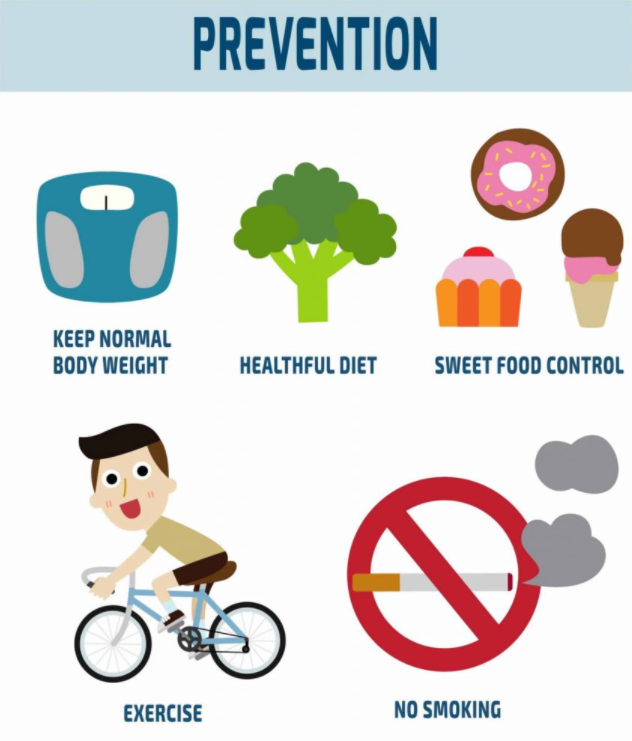
The plate method is a good way of thinking about your meals
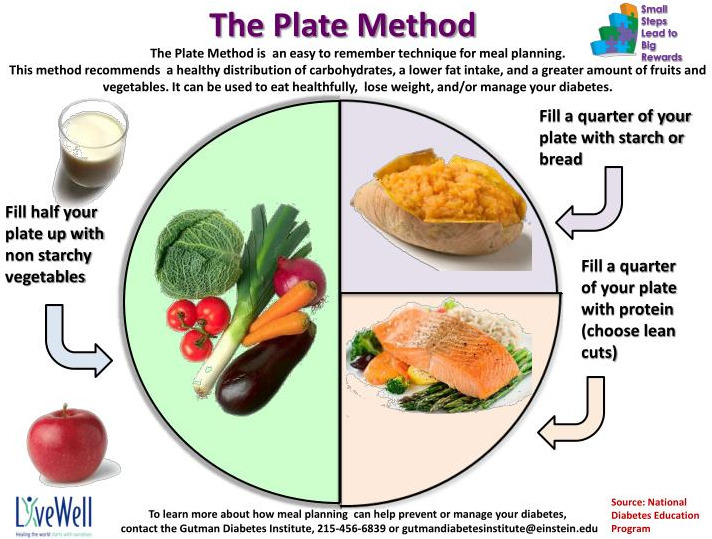
EXERCISE:
- The best way to increase your physical activity is to make it a part of your daily life. This would include taking the stairs where possible, housework and playing sport with your children.
- Find a sport you enjoy and schedule a time for it regularly with friends who will keep you accountable.
- Make use of technology in the form of apps or smart wear such as a Fitbit to get feedback on how physically active you are. Set an achievable goal, for example, 10,000 steps per day which will motivate you to continue.
MINDFULNESS:
- Regular prayer, and stress reduction are important components of a healthy lifestyle.
- The diagnosis of diabetes may give some individuals considerable worry. It is important not to label yourself as a diabetic, but rather think of yourself as an individual with diabetes. Do not aim for perfection. Do the right things 80% of the time and you should see your diabetic control significantly improve.
HOW IS TYPE 2 DIABETES TREATED?
This depends on the severity of diabetes which your doctor will assess.
- Mild cases of diabetes can be managed by life-style measures alone.
- Moderate cases of diabetes may need tablets.
- Severe cases of diabetes may require insulin with or without tablets.
There are several medications for diabetes which can be a little confusing. Your doctor will decide the best medicine for you. Some diabetes medications can lead to low blood glucose levels so it is important to have regular check-ups with your doctor.
WHAT TESTS SHOULD MY DOCTOR DO YEARLY TO MANAGE DIABETES?
- Your doctor will ask about your general well-being and ask if you have any complaints related to use of diabetes medicines (e.g., low blood glucose) or complaints related to complications of diabetes.
- You will have blood tests to check your glucose levels, liver and kidney function.
- If your doctor has asked you to check your blood sugar one or more times during the day, using a diary, he will look at this at your appointment.
- You will also have your blood pressure and cholesterol checked at your yearly appointment.
- You should have the back of your eyes photographed every year to look for a complication of diabetes called retinopathy.
- You will have a urine test to look for protein (called micro-albuminuria) as this is an early sign that the kidneys have been affected by diabetes.
- Your doctor should check your feet to ensure there are no breaks in the skin as patients with diabetes can have decreased feeling in the feet and a lesser blood supply.
WHAT ARE THE COMPLICATIONS OF DIABETES?
If diabetes is not well controlled, it can lead to complications. However, this can be prevented by good diabetes control.
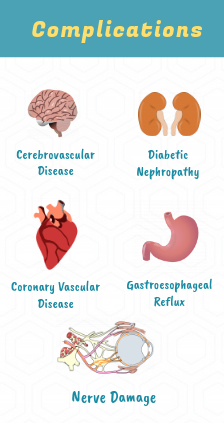
WHERE CAN I GO TO GET MORE INFORMATION ABOUT DIABETES?
There are numerous resources online which cover every aspect of diabetes from prevention to diagnosis and management. Useful websites include:
Authored by:
Dr Zaineb Mohsin
MBBch, MSc in Critical care (UK), MRCP(UK)
Qualified as a physician, trained in Endocrinology and Diabetes from Imperial NHS Trust and currently working as a research fellow in Metabolic bone disease at Oxford University



